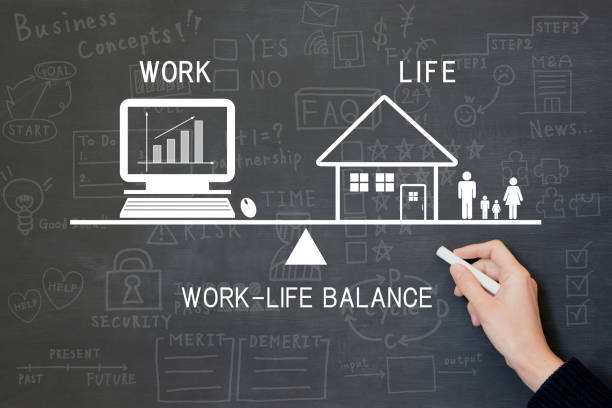Success is the result of both talent and diligence. But too much work may harm your physical, mental, and social well-being. It is essential to have a balanced life to accomplish your personal and professional objectives.
Here are seven warning flags that indicate an imbalanced work-life balance.
No Time for Personal Care
Do you struggle to find time for self-care? No time to have your hair cut? It would help if you had more time for a pedicure.
Making time for yourself might have a huge impact on your health. Allowing yourself a little self-care treatment once a month will make you look forward to it and help you get through the particularly trying days. Moreover, you deserve a reward for all your hard work.
You’re Constantly Worn Out
Overstress weakens the immune system, which makes you more susceptible to exhaustion and disease. It also causes physical ailments. Stress makes your body hurt and leaves you feeling exhausted because it sends your muscles and brain into “overdrive.”
Muscle discomfort, persistent headaches, dizziness, poor appetite, cognitive problems, low mood, and lack of enthusiasm are all signs of stress.
To rejuvenate your mind and body, try to get at least 7-8 hours of sleep each night and increase your self-care regimen.
You’re Engrossed in Your Phone
Email and cloud-based interactions might seem like employees are expected to be accessible at a moment’s notice, making it tougher than ever to leave work at the office. Before assuming your company expects you to react to every email after you go for the day, it’s crucial to discuss with them after-hours replies. Frequently, they email it as soon as they remember, and you must hold off till you return to the office to reply.
You’re Always Thinking About Work
You think about it while eating dinner. You reflect on it while in bed. You get preoccupied with your current project and lose focus of the discussion. You have a big issue when work is all you can think about.
It’s fantastic to be this focused at work. However, your priorities at home should be family, friends, hobbies, and other extracurricular activities. Your mental health will suffer if you constantly think about your work, and you’ll ultimately burn out.
It may be time to seek advice from a life coach for women, for example, if you can’t unplug. Your life coach will teach you coping mechanisms that will enable you to switch off your “job brain.”
You Lose Patience Much Too Quickly
You might get tense under stress. You should take a break and step back if you are easily upset or angered about trivial issues. If you don’t, you’ll eventually break under strain. To teach your mind to concentrate on the positive, try always to see the bright side of situations.
You Rarely Take a Vacation Day or a Sick Day
Days off are essential. Illness days are crucial. It would be detrimental to your health to refuse to utilize either. Though you haven’t taken a vacation in years, even if you believe everything is good, you could be on the verge of burning out. Sadly, it might take months to fix by the time it occurs. When you are ill, sick days are essential.
Attending work will not only make your condition worse, but you will also distribute it to other employees. When you are unwell, your work suffers as well. Employers want you to use your sick days if you are ill. Commitment is one thing, but neglecting your health won’t benefit you, your job, or anybody else.
You Are Unsure About Your Priorities
Do you often have too many undone duties at the end of the day? This might indicate that you are taking on more work than you can manage. Learn to set priorities and concentrate on the most crucial things. If you are a manager, develop your delegation skills. Put an end to attempting to do everything alone.
Begin with the most important item on the list and work your way down, rather than multitasking and attempting to do ten jobs simultaneously. Anything that cannot be completed today may be finished tomorrow.
Conclusion
Maintaining a healthy work-life balance is crucial to preventing burnout. When any of the scenarios above occur, pay attention and modify your schedule and priorities.











